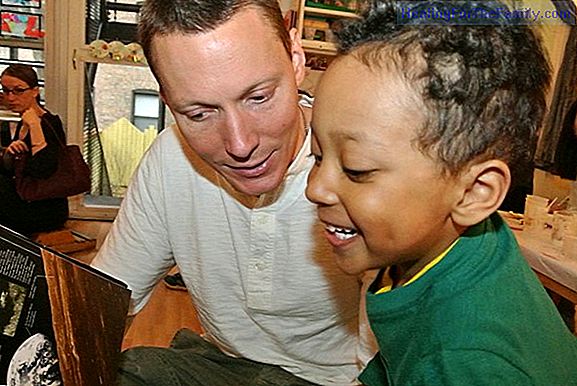Speech, a pending subject for children
Being able to communicate, expressing what we feel or what we think and knowing how to transmit it is fundamental in all areas of our lives, both in the personal, academic and what to say of the professional. How many of us are terrified by job interviews because of that fear of expressing ourselves
Being able to communicate, expressing what we feel or what we think and knowing how to transmit it is fundamental in all areas of our lives, both in the personal, academic and what to say of the professional. How many of us are terrified by job interviews because of that fear of expressing ourselves to others.
For many adults, speaking in public without shame or shame is unthinkable, and that insecurity is transferred to children without realizing it. How many children are terrified of going to the blackboard when the teacher tells them to tell their classmates something!Public speaking is a pending issue today.
How children can lose their fear of speaking in public

There are few educational centers where the art of speaking with eloquence is taught. As mothers, fathers and educators we can help bridge that gap that allows today's children to learn to communicate their feelings, emotions and opinions without fear. Something very positive not only for their family environment but also in the school environment and in the face of their professional future.
1- Promote the self-esteem of children.One of the main walls with which we can meet when children express themselves in public is the fear of failure, the fear of doing it wrong or the criticism of others. To avoid this, we can strengthen the moments in which the children express themselves, without advancing what they are going to say, even if they are slow to express themselves, and also avoid reducing the importance of the comments they may make, however vain they may seem, but rather the opposite. reinforcing and motivating that communication in a positive way, so that they learn to believe in themselves.
2- Encourage communication at homewithout forcing them to tell us what they have done at school or what has been the most fun of the day, or how they feel. We can start by showing them that we also communicate by telling them how our day has been so that they are encouraged to tell us about their personal experience. At the beginning they do not like or do not want to participate in the game, but if they see that their mother or father expresses and communicates with them constantly, they will gain confidence to learn to also express their feelings without fear or shame.
3- Read them stories very oftenbeing very expressive so that they learn that not only communicates with the voice but also with the body, and encourage them to read them to us in this way also. Even at an early age when they still can not read, we can encourage them to tell stories in their own way.
4- Teach them to put themselves in the place of the otherfavoring the feeling of empathy. Play to be someone else. For example, that dad or mom interprets the 'role' or role of their child, and vice versa ...
5.- Encourage them to ask without fear when they have not understood something orencourage them to ask when they want to know moreabout something reinforcing the Efforts made are fundamental.
6- Performing arts can help children lose their modesty to express themselvesnot only with oratory but also with their body gaining self-confidence and favoring their self-esteem.
7- The dance can also be an ally in this purposesince it helps the child to know his body and at the same time he learns to transmit feelings and sensations with him.
8- Encourage discussions and communication between family membersand friends on different topics. For children to learn to listen to different opinions and to respect different ideas.
9- Relaxation is fundamental.Preventing the child from having nervousness or stage fright also helps with relaxation exercises, such as 4-7-8: we take air through the nose for 4 seconds, hold the air for 7 and let go slowly for 8 seconds. seconds.
10- Enjoying table gameslike 'Time Up' or 'Taboo', in which children have to describe objects so that we can guess them through clues or games of mime also encourage oratory, as well as being fun and encouraging creativity .












